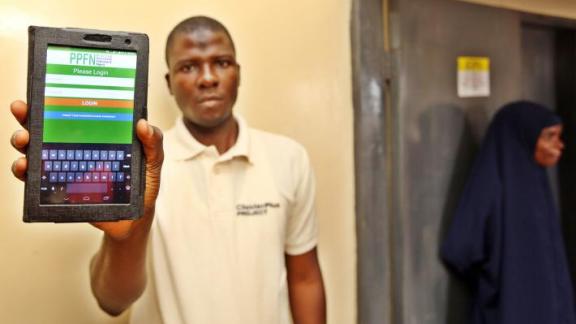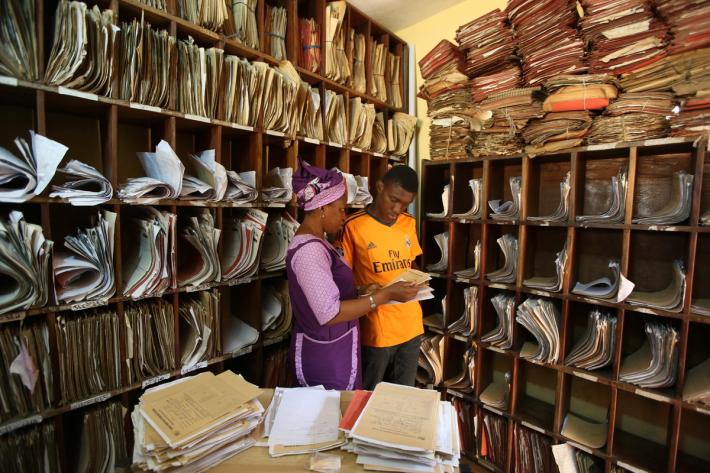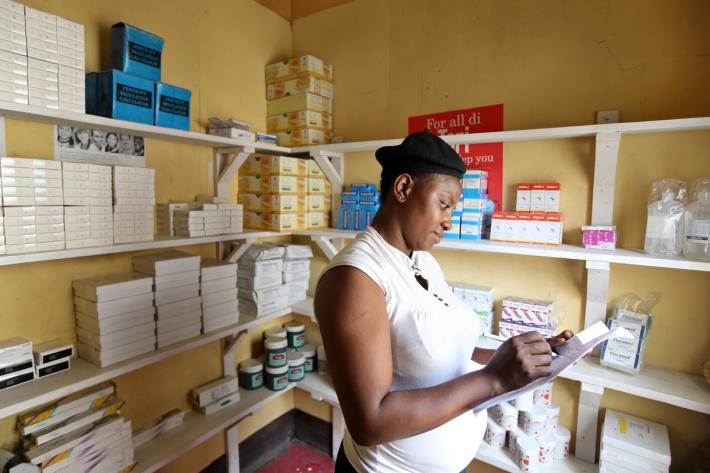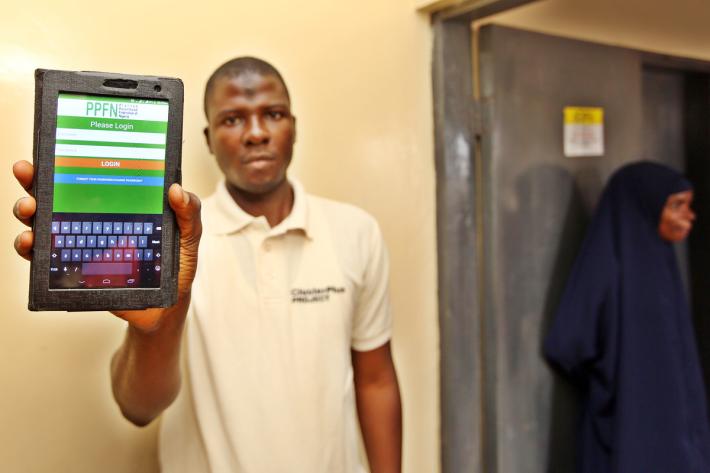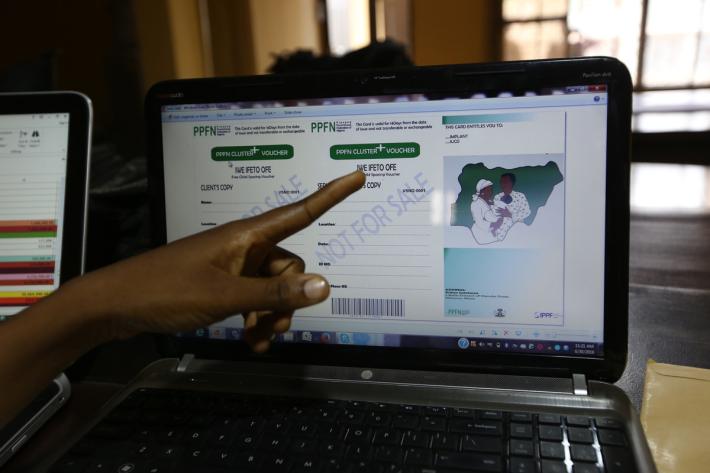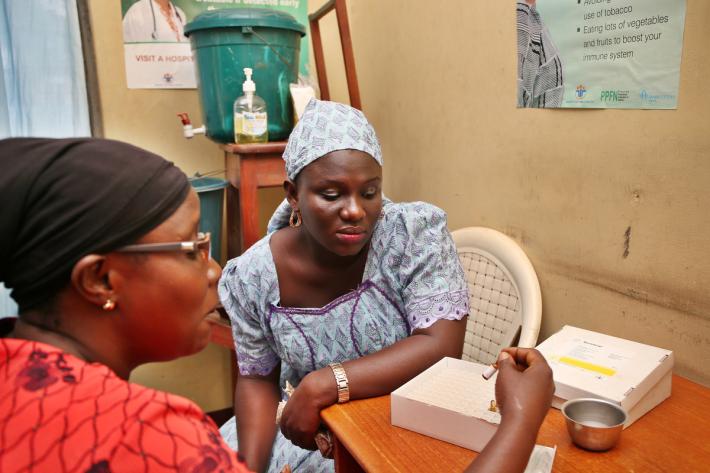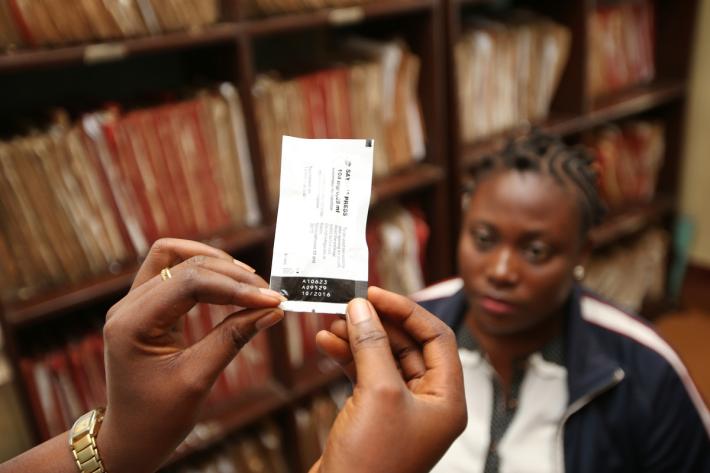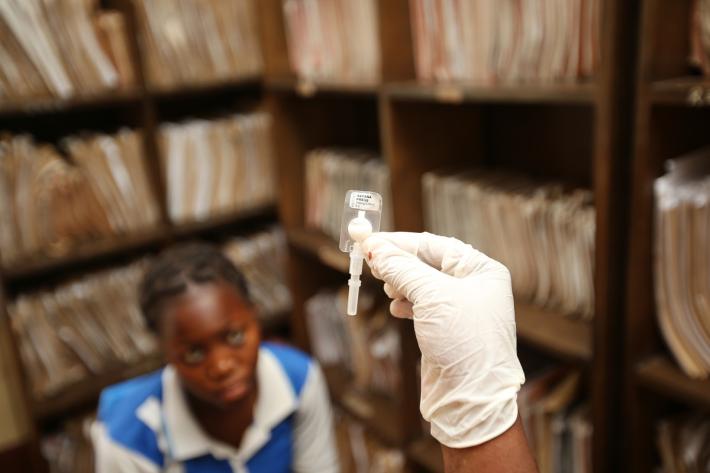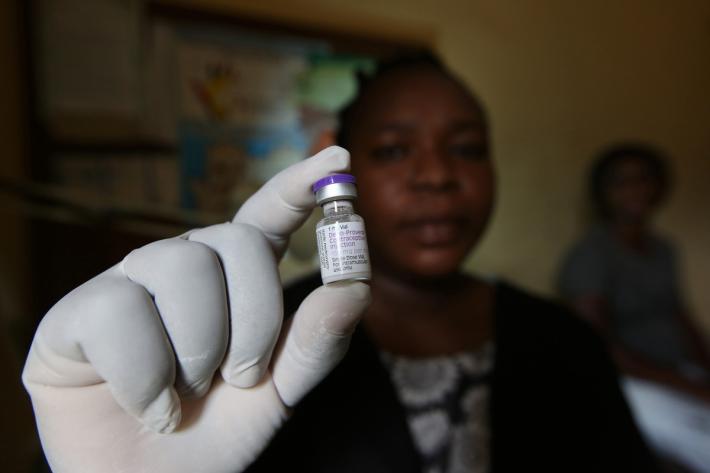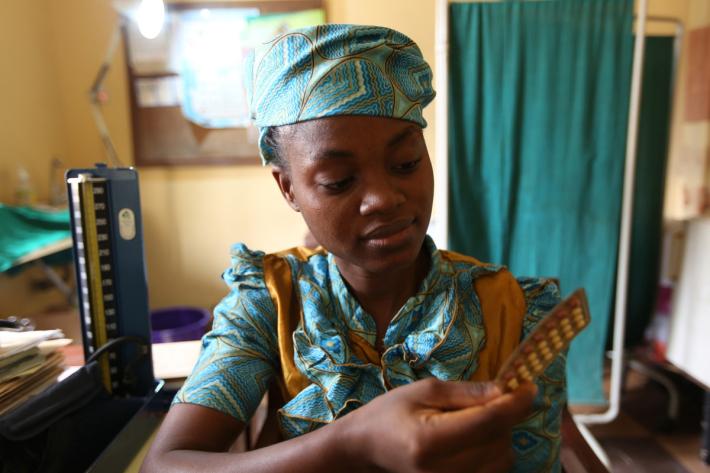"We capture the data directly into this app. It maps out what the demand will be and ensures that we never run out of those supplies.”
Monitoring and evaluation officer, Babatunde, is responsible for ensuring the supply of contraceptives for all the cluster facilities.
"My job entails the use of a mobile app built for direct data information capture (DDIC). I created an account for each of the 10 facilities that were under the Clusterplus Model. Before I stock up their store, I audit their supplies and can review their monthly report via the app. I put this into the mobile app as well as the commodities I have supplied them. Every two months, the app will forecast what a particular facility will need based on the contraceptive demand.”
"I provided training on the mobile app for the store keepers at the facilities we worked with. All through the nine months of the Clusterplus Project, no facility ever ran out. This meant family planning methods were always available to those that needed them.”
Babatunde has developed a wealth of knowledge about family planning and the many methods available. Clients favour long-acting methods Implanol and the IUCD.
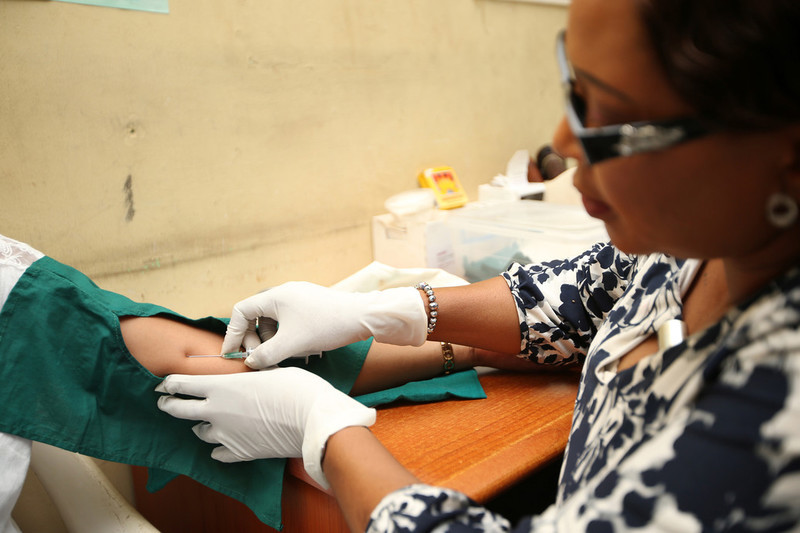
Two of Babatunde's colleagues Afolabi and Olufemi tell us they have both had some very memorable experiences during their careers as Community Health Extension Workers.
Afolabi, 32, says the crux of her work is in breaking down the meaning of family planning to rural communities.
"I discovered lots of misconception and misinformation, fears and rumors about family planning. But my job is to educate them on the benefits of family planning and allay their fears. We keep educating them and breaking down the 'walls' they have built around family planning methods, like the false thinking that implants require an operation."
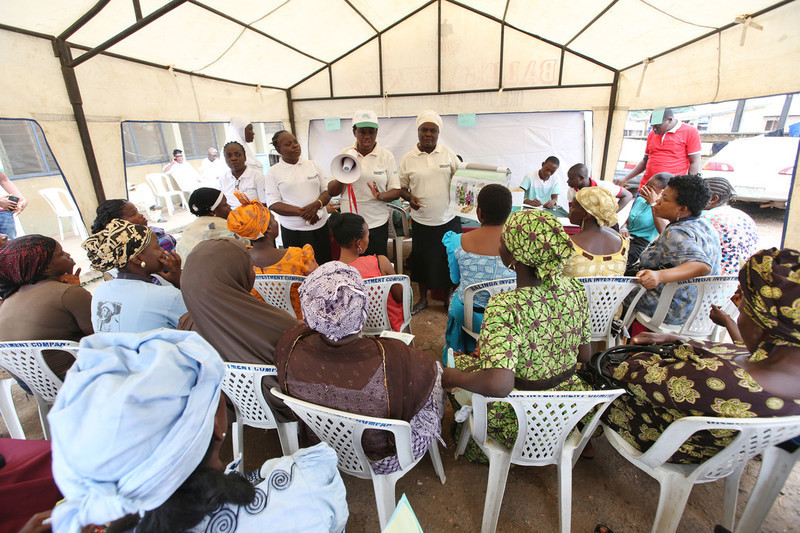
"I so much look forward to the outreach sessions. It is a time to help women make better choices that will help them plan for their family and future. The fact that the family planning method is administered free has contributed to its high level of acceptance by the people."
"In some of our communities, the people are so poor that they can't feed themselves properly. Let alone to have money for family planning. Poverty is real and not planning your family, escalates the challenges of having a poor quality of life. No money should mean fewer children. But the reverse is the case and poverty goes together with low level of education."
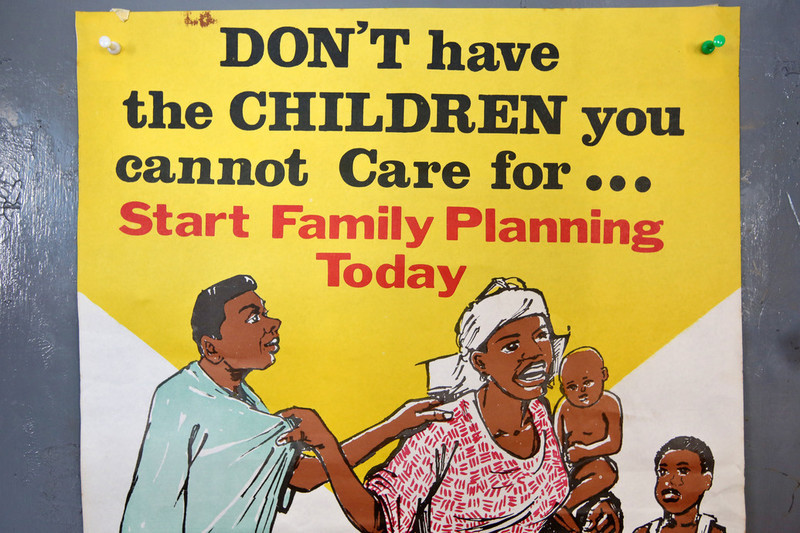
Olufemi agrees. "I counselled a woman who I thought was 50-years-old. But I was surprised to find out she was just 29-years-old and had 12 children. The burden and labour of delivering 12 children could be seen all over her".
"It was a pathetic case for me. I imagined, how can a 29-year-old have 12 children? We spoke about the different family planning methods available. She decided to have a long term method that will last for five years.
"Months later, she called me to thank me. I was so happy knowing that she appreciated it. Because I wondered, how will she raise all those children without a good livelihood? I was glad to have contributed to helping her plan her family."
The team
Read more about the team behind Nigeria's amazing success
when
country
Nigeria
Subject
Contraception
Related Member Association
Planned Parenthood Federation of Nigeria







